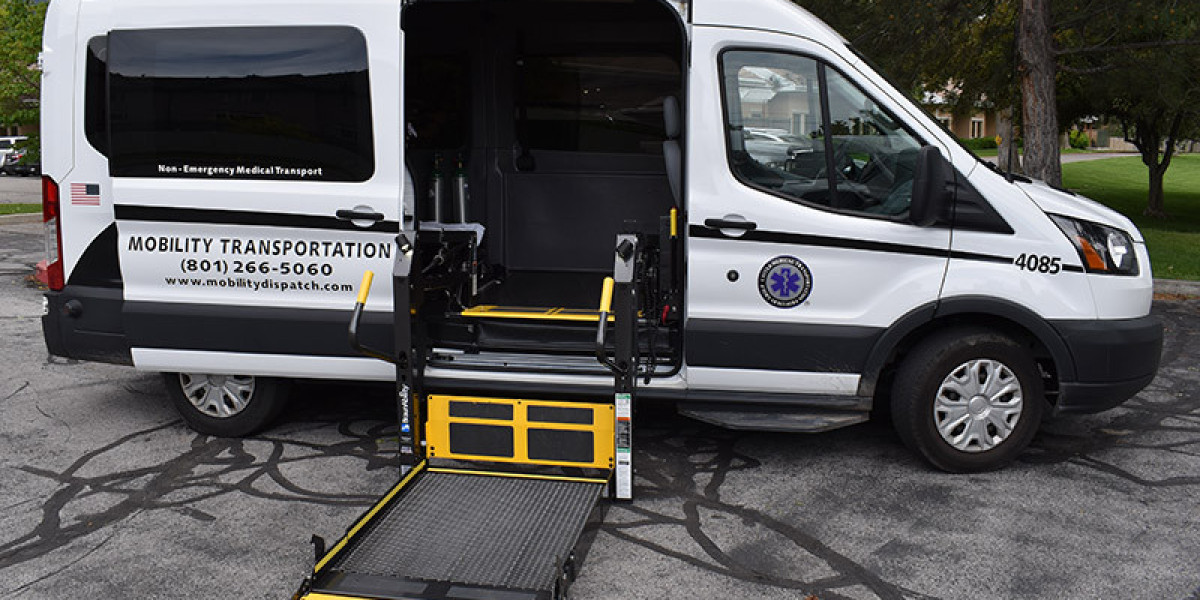Non Emergency Medical Transportation(NEMT) is an essential service that ensures patients who need transportation to medical appointments or healthcare facilities can do so safely and reliably, without the need for emergency services. Unlike emergency medical transportation, which is reserved for urgent medical situations, NEMT caters to individuals with chronic conditions, disabilities, or those who need assistance getting to routine appointments, therapies, or procedures.
What is Non-Emergency Medical Transportation?
Non-Emergency Medical Transportation (NEMT) is a transportation service designed for individuals who need assistance in getting to and from healthcare appointments, but do not require emergency medical care. NEMT services are available for patients who have difficulty using traditional transportation methods due to their health conditions. These services are typically provided by vehicles that are equipped to accommodate patients’ specific needs, such as wheelchair access or stretcher transport.
Who Benefits from NEMT?
Elderly Individuals
- Senior citizens, especially those with mobility issues or chronic conditions, benefit from NEMT services to attend medical appointments, therapy sessions, or follow-up care after surgeries.
People with Disabilities
- Individuals who rely on mobility aids like wheelchairs or scooters can use NEMT to ensure they have access to necessary medical services.
Patients with Chronic Health Conditions
- People managing chronic illnesses such as diabetes, cancer, kidney disease, and heart conditions often require frequent visits to healthcare providers. NEMT ensures they can access treatments like dialysis, chemotherapy, or regular check-ups.
Post-Surgery Recovery Patients
- Individuals recovering from surgery may not be able to drive themselves to follow-up appointments or physical therapy. NEMT allows these patients to receive the care they need without worrying about transportation.
Low-Income or Underserved Populations
- Many individuals who lack access to private transportation or public transit rely on NEMT for their medical needs. It provides a cost-effective and reliable option for accessing healthcare.
Types of NEMT Services
Ambulatory Transportation
- Ambulatory transportation is for patients who are able to walk or move on their own but may need assistance getting in and out of a vehicle. This service provides a comfortable and safe ride to and from appointments.
Wheelchair-Accessible Transportation
- Wheelchair-accessible vehicles are equipped with ramps or lifts and are designed to accommodate passengers in their wheelchairs. This is a crucial service for individuals with mobility impairments who cannot travel in regular vehicles.
Stretcher Transportation
- For patients who are bedridden or unable to sit upright, stretcher transportation is used. This type of service ensures that patients are safely transported while lying down.
Door-to-Door Service
- Many NEMT providers offer door-to-door services, where the vehicle picks up the patient from their home and drops them off directly at their medical appointment. This service provides convenience, particularly for those who may struggle with getting to a pick-up point.
Accompanied Transport
- Some NEMT services offer the option of a medical assistant or caregiver accompanying the patient during transport, especially for those who may require additional assistance during the trip.
Benefits of NEMT
Improved Access to Healthcare
- NEMT ensures that individuals who may face transportation barriers can still attend medical appointments. This is especially important for patients who may not have access to family or friends who can provide rides.
Reduced Missed Appointments
- Reliable NEMT services reduce the likelihood of missed medical appointments, which can negatively impact patient health. By ensuring patients have transportation, NEMT helps improve healthcare adherence.
Increased Independence
- NEMT allows individuals who cannot drive to maintain independence in accessing medical care. This service empowers patients to manage their healthcare needs without depending on others.
Safe and Comfortable Travel
- NEMT vehicles are designed with patient safety in mind. They often have features such as secure wheelchair tie-downs, oxygen tanks, or medical monitoring equipment for those who need it.
Timeliness and Convenience
- NEMT services are scheduled around the patient’s medical needs, ensuring that they arrive on time for appointments. This ensures that patients can receive timely treatments and avoid delays that might impact their health.
How Does NEMT Work?
Booking a Ride
- NEMT services can be scheduled in advance or on-demand, depending on the provider. Patients can schedule a ride through a phone call, online system, or through their healthcare provider, if they are eligible for NEMT services.
Eligibility
- Eligibility for NEMT services varies by location and insurance coverage. In some cases, services may be covered by Medicaid, Medicare, or private insurance plans. Certain patients with chronic conditions or disabilities may also qualify for NEMT assistance.
Transportation to Appointments
- On the day of the appointment, the NEMT vehicle will arrive at the designated pick-up location, assist the patient as needed, and transport them to the healthcare facility.
Post-Appointment Return
- After the medical appointment, the NEMT provider will return the patient to their home or other designated location. Some services also offer additional help, such as providing assistance with getting in and out of the home.
How to Choose the Right NEMT Provider
Look for Experience and Reputation
- Choose an NEMT provider with a strong reputation for reliability and professionalism. Look for companies with positive customer reviews and experience serving patients with specific needs, such as wheelchair accessibility or stretcher transport.
Ensure Vehicle Accessibility
- Verify that the NEMT provider offers vehicles that meet your specific transportation needs. This includes ensuring that the vehicles are wheelchair accessible or equipped to handle any medical equipment required during transport.
Consider Timeliness
- Make sure the provider can guarantee punctual services. Arriving on time for medical appointments is crucial, so it’s essential to choose a provider that can ensure timely transport.
Check for Insurance and Certification
- Ensure that the NEMT provider is properly licensed and insured. The provider should comply with safety and healthcare regulations to ensure the highest standards of care during transportation.
Customer Service and Communication
- Evaluate the level of customer service provided by the NEMT provider. Good communication and the ability to resolve any issues that may arise are essential for a smooth experience.
Conclusion
Non-Emergency Medical Transportation (NEMT) is a vital service that ensures patients who have mobility challenges, chronic health conditions, or other special needs can access medical care. Whether for routine appointments, therapy sessions, or post-surgery follow-ups, NEMT plays a crucial role in improving healthcare access and outcomes for a wide range of individuals. By offering safe, reliable, and comfortable transportation options, NEMT helps remove barriers to healthcare, ensuring that everyone can get the medical care they need, regardless of their transportation situation.








